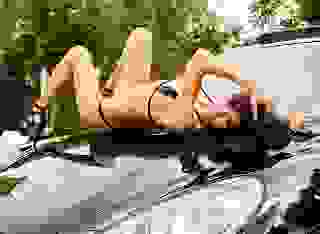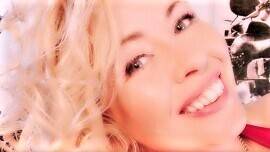- Non-Erotic Poetry
- Pascal's Wager
Note: You can change font size, font face, and turn on dark mode by clicking the "A" icon tab in the Story Info Box.
You can temporarily switch back to a Classic Literotica® experience during our ongoing public Beta testing. Please consider leaving feedback on issues you experience or suggest improvements.
Click hereNothing was always something for him.
"Think Nothing of it," he said,
"and live as if it mattered for Nothing
because it probably did."
Yet when the darkest hour came,
he thought he saw a special hell,
not the one that Dante saw,
but nothing, nothing, nothing at all,
except when he thought that he heard
a lullaby his mother once played
and thought perhaps his waiting tomb
might really be another womb,
something the Easterns wrote about,
although he would not wager that
nor the sounds of a dulcet voice
and a fading violoncello.
- COMMENTS
The last 2 lines, deliberately vague, and line 2 of the last stanza are the key lines. Did the "dulcet voice" belong to Pascal's mother, or was she just playing the violoncello? If not, was the voice just another hallucination? Was the "dulcet voice" fading like the sound of the violoncello? Maybe not. Who knows?
The link provided by 12o1 explains "Pascal's Wager" further anyone is interested.
I see the meaning. But too, do not understand the ending unless it is as the anon suggests. it's out of my mental reach and bugging me. gm, explain.
the poem as a poem, great read but I would argue that nothing is worse than Dante's hell. Surely nothing is a fine state and only human conceit sees it as hellish?
I could be wrong, but if I were to hazard a guess, I would say the last two lines are merely implying that you can't actually plan or deal with death. Pascal suffered one hell of a lot before dying so young. One may intellectually rationalise about death being akin to going to back to a womb, as many oriental philosophies argued, but Pascal wouldn't have bet a dime on it. Death can sometimes be gory, unromantic and painful.
At least that's what my limited understanding tells me. Only greenmountaineer can elucidate now. :-)
Anons comment helped me understand this although I could already see the merits myself, but I'm afraid the meaning of the last two lines escapes me. Probably not your fault but surely if you're writing for the masses it does help if they are likely to understand the subject
Its an excellent poem, although I must confess I fail to understand the significance of the title. Pascal's wager, if I recall correctly infers mathematically that we are compelled to gamble. Philosophically, (and I could be mistaken here) 'Pascal's wager' claims to prove that belief in God is rational: "If God does not exist, one will lose nothing by believing in him, while if he does exist, one will lose everything by not believing." Or something like this.
The way I read this poem - and thats why I feel its an excellent poem - is that the poet is calling Pascal's life itself a wager, kind of. Pascal died very young (almost at 40 or less), and I believe he suffered quite a bit. He also claimed teh existence of vacuum (I loved the Nothing reference in the beginning; its a super allusion to his initial work), though people like Descartes mocked him for his theories on vacuum.
I guess the poet here refers to the bet he had with life itself. I loved it, but if green mountainer has some other explanation, I would love to be educated on this.
w/o comment (I get tired of the disclaimers) and these would be minor judgment calls.








